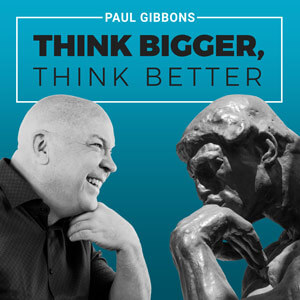
Listen to our podcast on psychological myths, neuroscience, and mental illness
 I first became aware of today’s guest as I was writing a book on business change, which led me to make a list of change myths. While I was at it, I also looked at psychological myths. After all, change involves changing people, which is psychology. As I was digging deeper into discovering some of the myths that I still held, I stumbled across Scott Lilienfeld’s fascinating book, 50 Great Myths of Popular Psychology.
I first became aware of today’s guest as I was writing a book on business change, which led me to make a list of change myths. While I was at it, I also looked at psychological myths. After all, change involves changing people, which is psychology. As I was digging deeper into discovering some of the myths that I still held, I stumbled across Scott Lilienfeld’s fascinating book, 50 Great Myths of Popular Psychology.
Scott is a professor at Emory University, currently studying the causes and assessment of personality disorders (especially psychopathic personality) and personality traits; personality assessment (e.g., the validity of projective techniques); psychiatric classification and diagnosis; pseudoscience and clinical psychology; evidence-based clinical practice; scientific thinking and its application to psychology; and philosophy of science and psychology.
Click “Play” above and join Scott and me for an in-depth discussion on today’s topics: psychological myths, neuroscience, and mental illness. Learn how many of the things you believe might be mythology and, if they’re false, how many of them might be harmful.
What You’ll Learn from this Episode:
- How close we are to linking the brain (neuroscience, neurobiology) to gross behaviors (learning, relationships, achievement?)
- Why so much popular neuroscience is overstated… or worse, nonsense?
- The most harmful myths in the treatment of mental illness.
- Why some myths are harmful – such as “dreams have symbolic meaning,” “left brained versus right brained,” or “you’ve got to get your anger out.”
- The harm that can be caused by people talking incorrectly about neuroscience.
 Featured on the Show:
Featured on the Show:
- Facts and Fictions in Mental Health by Hal Arkowitz and Scott O. Lilienfeld
- Brainwashed: The Seductive Appeal of Mindless Neuroscience by Sally Satel and Scott O. Lilienfeld
- 50 Great Myths of Popular Psychology: Shattering Widespread Misconceptions about Human Behavior by Scott O. Lilienfeld, Steven Jay Lynn, John Ruscio, and Barry L. Beyerstein
- Episode: Stoicism, Atheism, Pseudoscience, Scientism with Massimo Pigliucci
- Rate and review the show to receive a book from one of our guests!
Enjoy The Show?
- Don’t miss an episode, subscribe via iTunes, Stitcher or RSS.
- Leave us a review in iTunes.
- Join the conversation by leaving a comment below!


